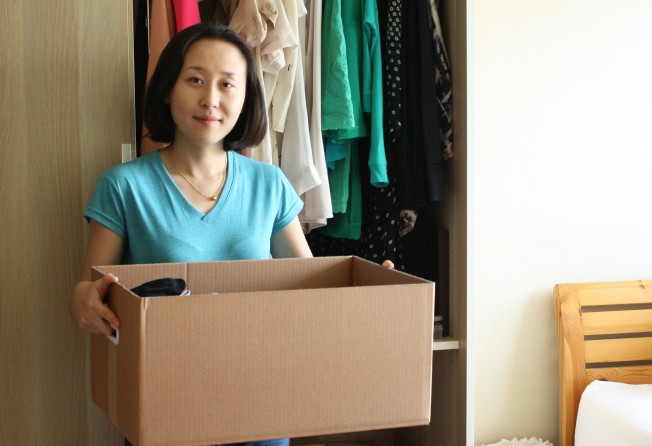Affluent Chinese ditching consumerism for the simple life
Growing enthusiasm for ‘minimalist lifestyles’ and reflection on life’s true needs.

In a residential apartment in the south of Beijing, Duan Yan takes out all her clothes and accessories from the wardrobe, examines them one by one, puts what she really needs back and packs the rest in a cardboard box.
The office worker, 32, has got tired of her cluttered home and is trying hard to reduce her personal possessions and cut down on shopping in pursuit of a simpler and more well ordered life.
“I used to spend thousands of yuan every month buying new clothes, shoes and handbags. But actually the joy of possessing them is short and the trouble to find room for them and maintain them is long lasting. So I decided to make a change,” said Duan.
During the past two years, Duan has sold or given away more than 100 items of clothing and numerous household goods. She also plans to get rid of a brown-colour Prada handbag that cost her more than 20,000 yuan (HK$25,000). She bought it years ago but has barely used it.
While affluent Chinese consumers have shown strong purchasing power in recent years, some middle-class urbanites like Duan are starting to pursue minimalist lifestyles and reflect on what they truly need in life.
Zhu Rui, a consumer researcher and marketing professor with Cheung Kong Graduate School of Business in Beijing, said most well-off Chinese people, who had gone through the age of “material scarcity”, were now using possessions as status symbols, to prove they were living a good life.
“After getting rich, people like to purchase a lot of expensive things,” said Zhu.
“However, when they become aware that what they possess is actually a kind of burden or cannot represent their taste at all, some might think differently about their lifestyle.”
On Douban.com, one of the most popular social networking sites on the mainland, various discussion groups focused on minimalist lifestyles have emerged during the past few years, providing a gathering place for people pursuing the simple life.
Wang Zhe is the founder of one of these discussion groups that has attracted more than 12,000 members.
A human resources manager in Shanghai, Wang described himself as a shopaholic for clothes and books.
At his peak, he had more than 420 items of clothing and a wall of books in his apartment.
“Everyday it took me a lot of time to select which coat or pair of pants I should wear. And I also spent more time buying books than reading books. I thought I would read each of them one day, but that day never came,” the 35-year-old recalled.
After a few years of effort, Wang managed to cut the number of his possessions to less than 75. He has fewer clothes now, but they’re better quality. Among the other things he has kept are a Kindle, two bibles and an English dictionary.
While Wang’s new way of life has saved him much time and money, most of his friends and colleagues do not understand his choice.
“Some thought my idea was interesting but they would definitely not follow me. Some even asked me if I wanted to become a monk since I had given away so many things,” said Wang.
Feeling lonely in his choice of lifestyle, Wang created a discussion group on Douban.com, enabling people to share their thoughts on minimalism and to post lists of the things they have thrown away.
“Getting rid of useless things is just the first step towards a minimalist lifestyle. Your ultimate goal is to find more meaningful things to do when you have that much more time and money.
“But fewer people are able to get to this level,” said Wang, who has spent his extra time travelling and reading on his Kindle.
In 2013, a book titled Danshari by Japanese writer Hideko Yamashita was introduced on the Chinese mainland. It stresses the importance of disposal and separation in daily life and urges people to keep their living spaces, as well as their minds, tidy.
The book struck a chord with many middle-class readers and fuelled their enthusiasm for minimalist lifestyles.
Duan Yan is a fan. Not only has she taken to selling her clothing and handbags, she has also left a number of chat rooms on the social networking tool WeChat.
“There’s too much information we get everyday. We’re always concerned that we may miss something if we skip the information. It’s the same as storing too many useless things in our homes.”
Zhu Rui said some affluent Chinese suffered from “excessive consumption”, spending too much on costly items they didn’t really need.
“But I believe it’s a trend for people to realise the advantages of a simple life as they become more mature consumers,” she said.